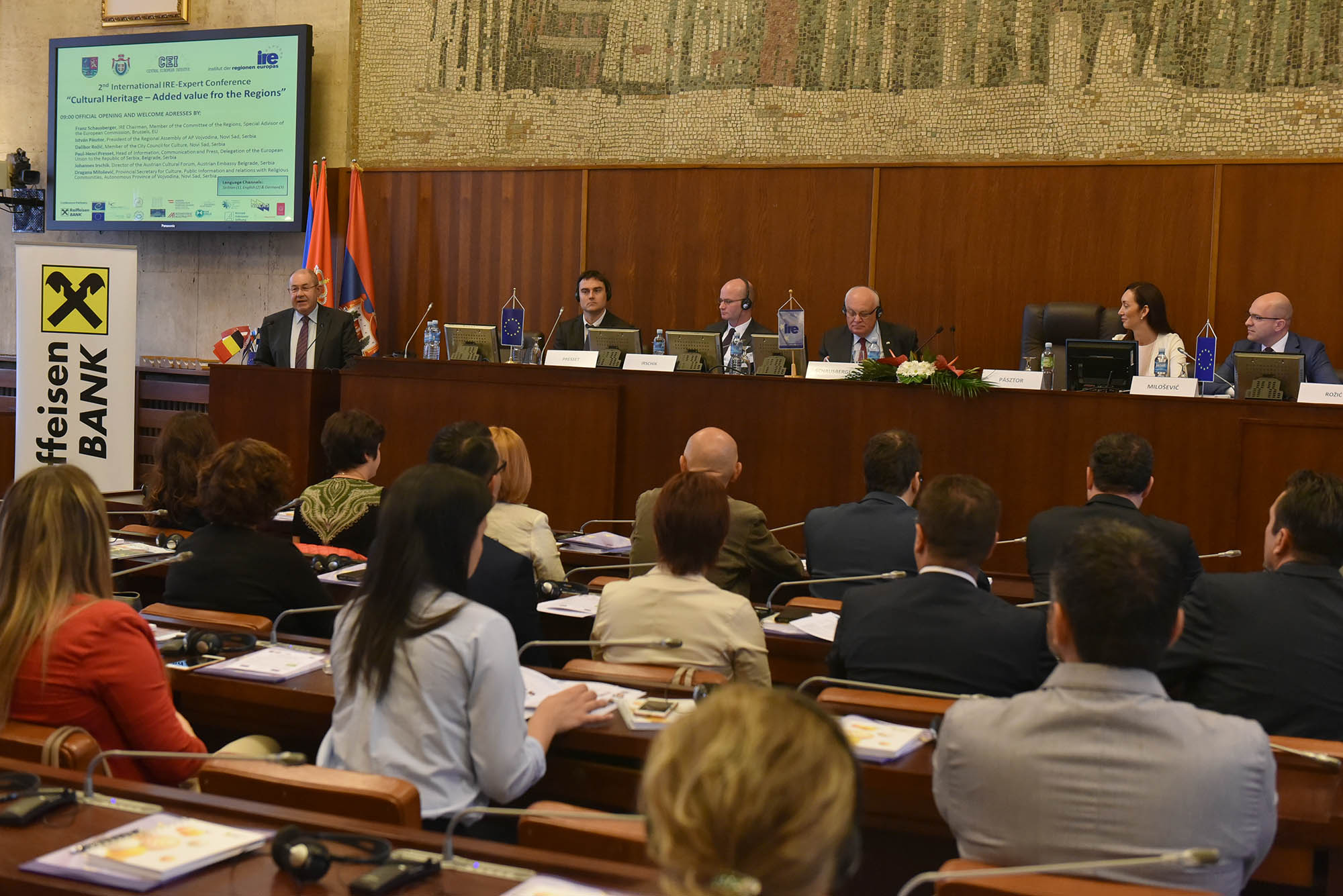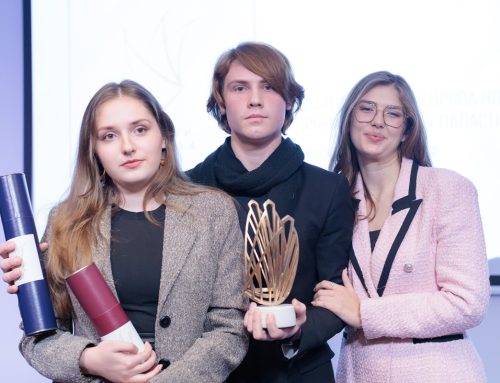EU membership does not mean that Serbia will lose its national, linguistic or cultural identity; on the contrary, the EU cherishes and fosters cultural identities which can be inferred from the fact that it financially supports the reconstruction of landmark cultural and historic monuments through a number of programmes. These were the conclusions drawn by participants in the conference “Regional Cultural Heritage – Sustainable Way“ which took place at the Assembly of the Autonomous Province of Vojvodina.
The conference was arranged by the Institute of the Regions of Europe and the European Affairs Fund of Vojvodina. It brought together national and foreign cultural actors and international experts in the field of cultural heritage for a discussion on the most efficient ways of preserving the cultural heritage, financing, examples of good practice, regional cultural heritage and the way it can be preserved and improved.
“Erasmus, Creative Europe, Horizon 2020 represent only a portion of EU-funded programmes through which projects in the area of cultural heritage are financed. We also have CBC programmes. The Fortress in Golubac, the Synagogue in Subotica, the Franciscan Monastery in Bac and many other cultural monuments that have been reconstructed thanks to EU funding underlie the importance of this area,“ said Head of Information, Communication and Press at the EU Delegation to Serbia Paul-Henri Presset.
The focus of the European Union extends beyond cultural and historical monuments and architectural heritage, he said. The EU also pays attention to local products, such as Sjenica cheese, he noted, stressing the economic aspect of cultural heritage.
“We are aware of the importance of preserving the cultural heritage in the context of diversity fostering. However, the economic aspect of it somehow seems to fall out of focus. Let me share some data with you: cultural heritage sector employs over 300,000 people in the EU, while the jobs of another 7,8 million people are indirectly linked to cultural heritage. That is why this sector is important from the economic point of view as well,“ Presset added.
Cultural heritage, preservation of identity and cherishing of multiculturalism remain in the focus of attention, especially in Vojvodina, said Vojvodina Assembly Speaker Istvan Pastor, describing today’s conference as important as it serves as a forum for experience exchange.
“All speakers in the conference agree that the preservation of cultural heritage should not be seen as turning to the past, but rather as fostering of values for the future. I believe that cultural heritage preservation is in fact an ambition to create a period of permanent Renaissance: going back to the roots and adding new dimensions to them. We have taken upon ourselves a huge task dictated by two particular circumstances: on the one hand, we have very rich cultural heritage, while on the other, our resources to pay proper attention to it have in recent times been limited and insufficient. Hence, we are now faced with numerous tasks, and in order to tackle them, we need patience and time,” Pastor said.
The conference was attended by numerous experts in the field of cultural heritage from Italy, Romania, Austria, France, Slovenia and Croatia. President of the Institute of the Regions of Europe Franz Schausberger said that Serbia should show EU citizens that it shares cultural heritage with the rest of Europe.
“Most of the people don’t know this and it is important to convince them that you possess genuine European cultural heritage and to show them that there is European culture in your country. EU citizens don’t know much about non-EU countries but at the same time they have to reach an agreement before a new country can join the EU. The same goes for Serbia. I visited the Gallery of Matica Srpska yesterday and I was amazed by the heritage I saw there, artworks of the same value and quality as those on display in galleries in Paris, Vienna or Berlin. You have to show it to people in Europe,” Schausberger said.
People should not be afraid of losing their identity, culture or language once their country joins the EU, he said, adding that it is very important to communicate this to the public.
“On the contrary; with 25 years of professional career all around Europe behind me, I can tell you that people use their mother tongues more than they use any of the official languages. If a Catalonian representative is uncomfortable with speaking in Spanish, he or she can speak freely in Catalonian and have their words interpreted. There is no fear of losing your language or identity. The motto of the European Union is “United in Diversity” so it is very important to cherish your own local identity and you can count on the EU to support it,” he said.




